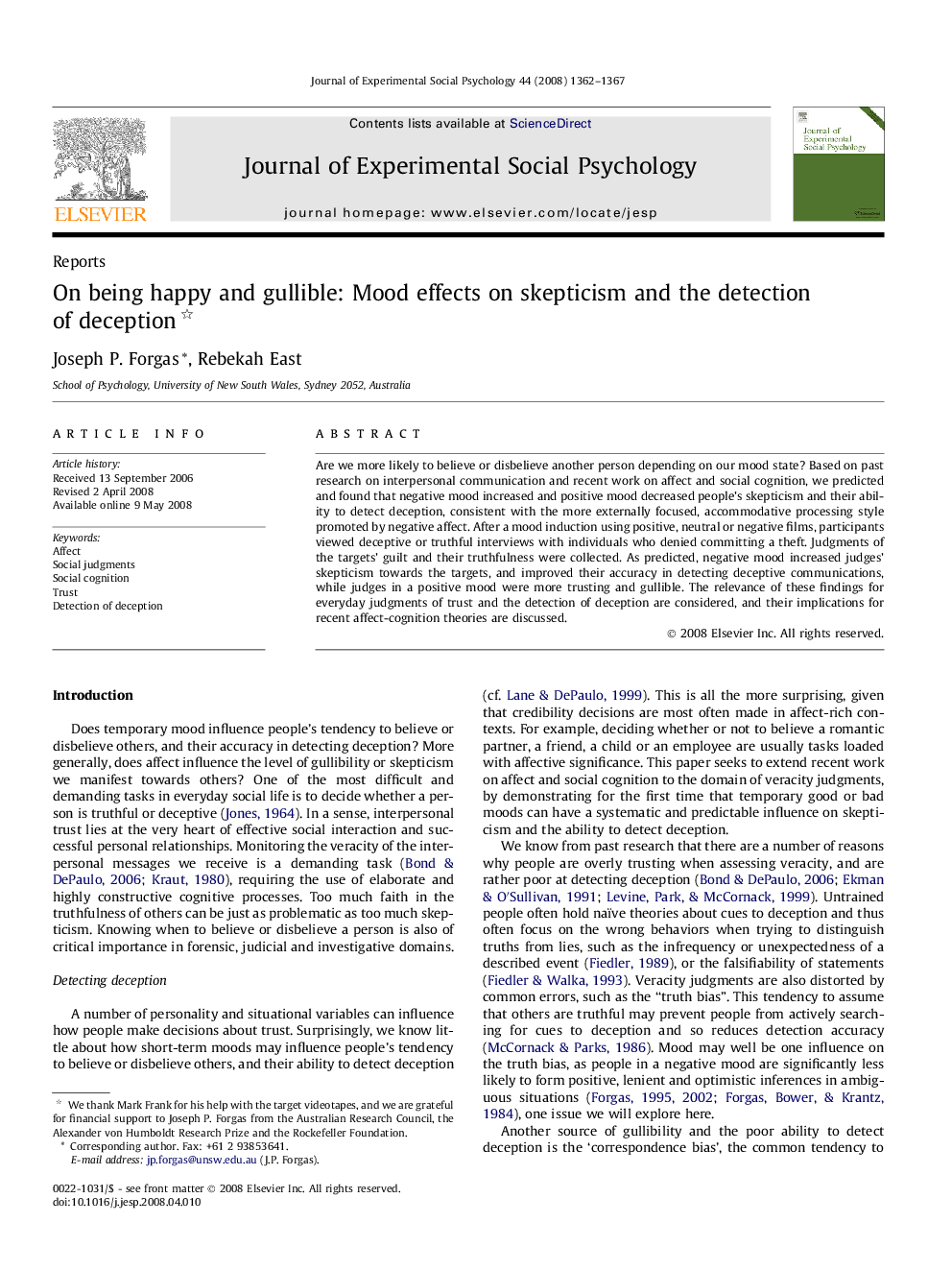| Article ID | Journal | Published Year | Pages | File Type |
|---|---|---|---|---|
| 947955 | Journal of Experimental Social Psychology | 2008 | 6 Pages |
Are we more likely to believe or disbelieve another person depending on our mood state? Based on past research on interpersonal communication and recent work on affect and social cognition, we predicted and found that negative mood increased and positive mood decreased people’s skepticism and their ability to detect deception, consistent with the more externally focused, accommodative processing style promoted by negative affect. After a mood induction using positive, neutral or negative films, participants viewed deceptive or truthful interviews with individuals who denied committing a theft. Judgments of the targets’ guilt and their truthfulness were collected. As predicted, negative mood increased judges’ skepticism towards the targets, and improved their accuracy in detecting deceptive communications, while judges in a positive mood were more trusting and gullible. The relevance of these findings for everyday judgments of trust and the detection of deception are considered, and their implications for recent affect-cognition theories are discussed.
